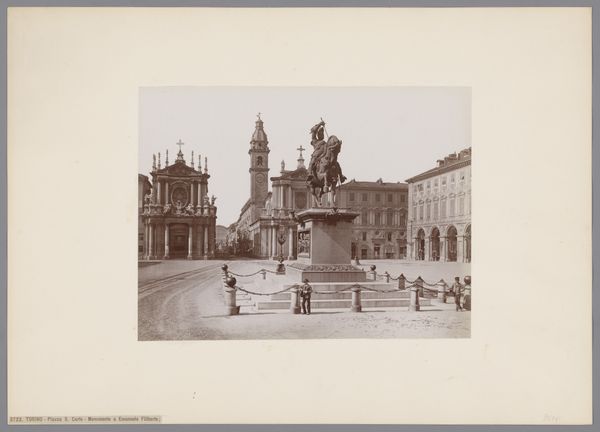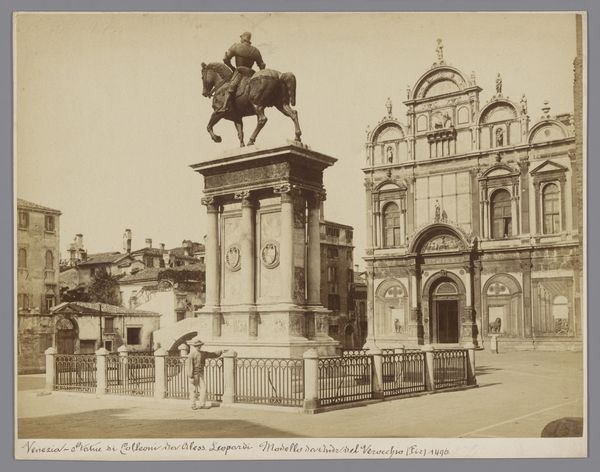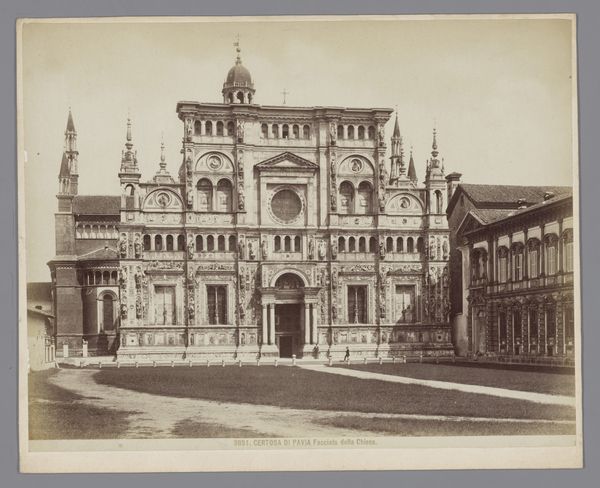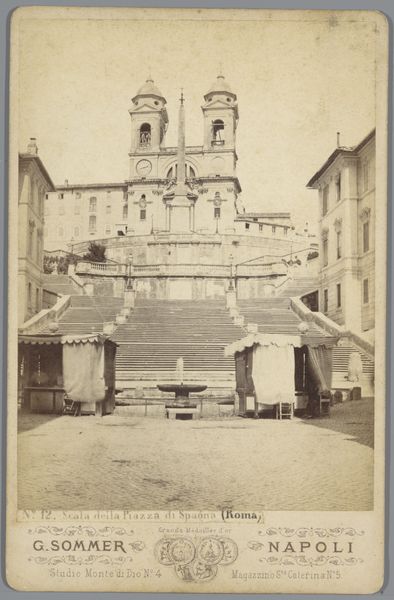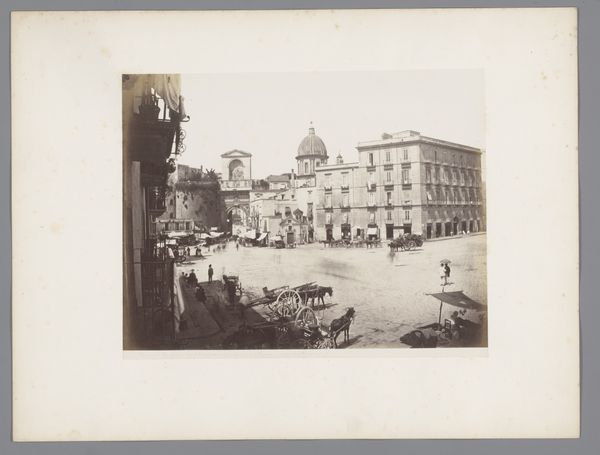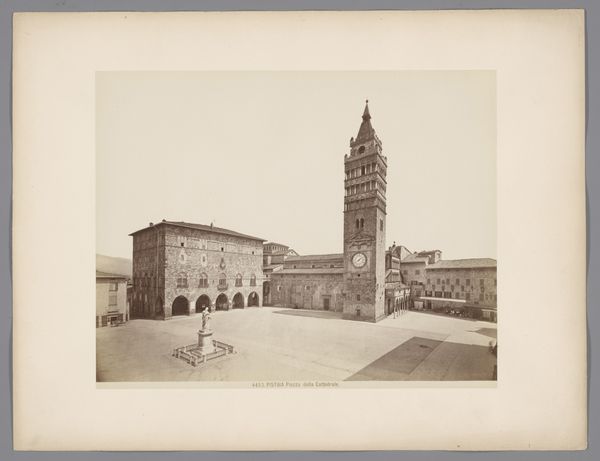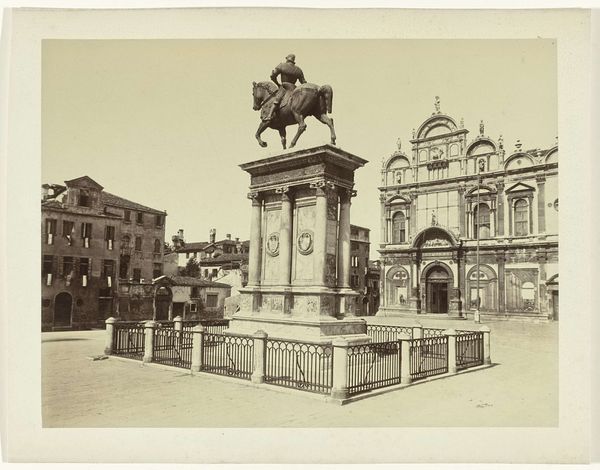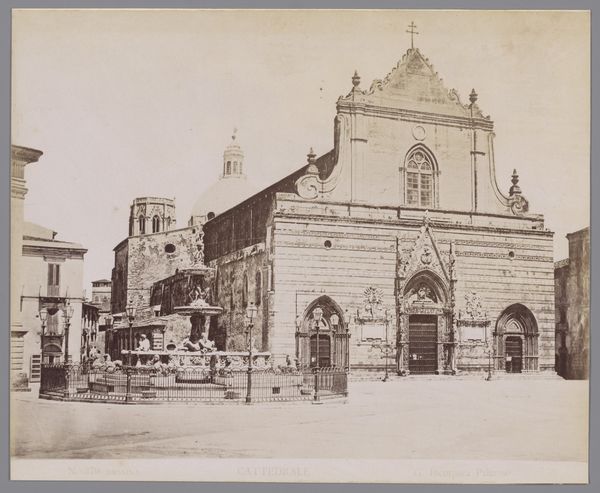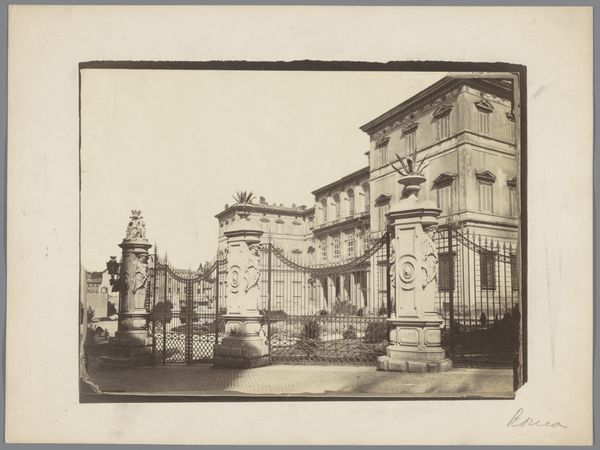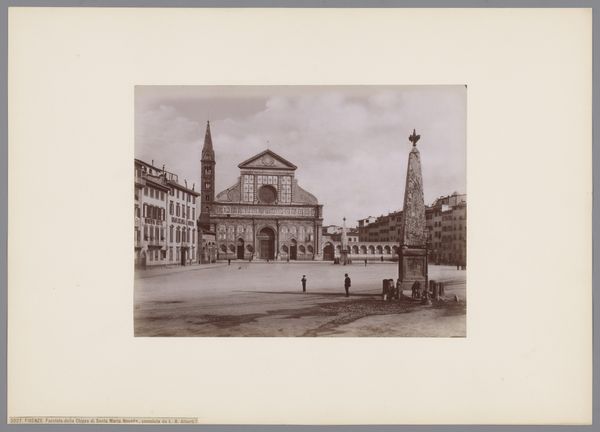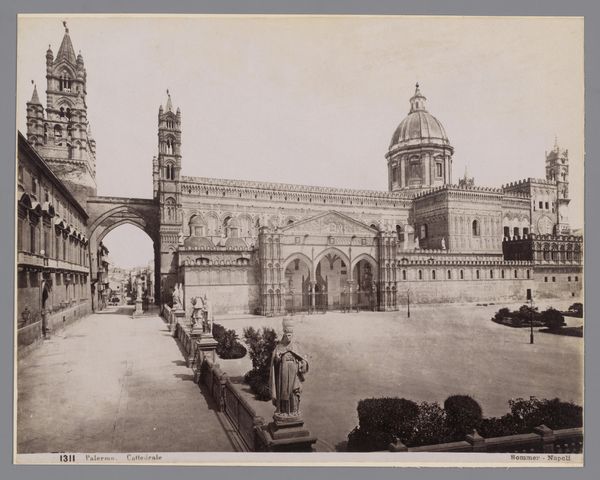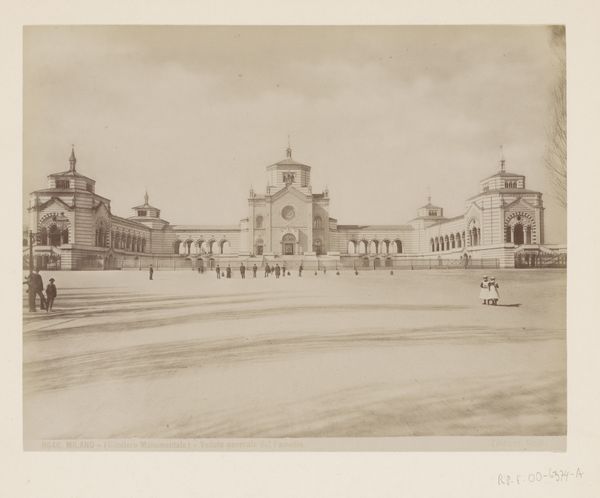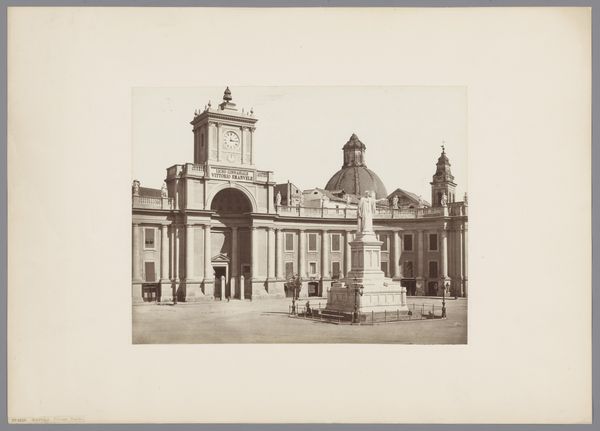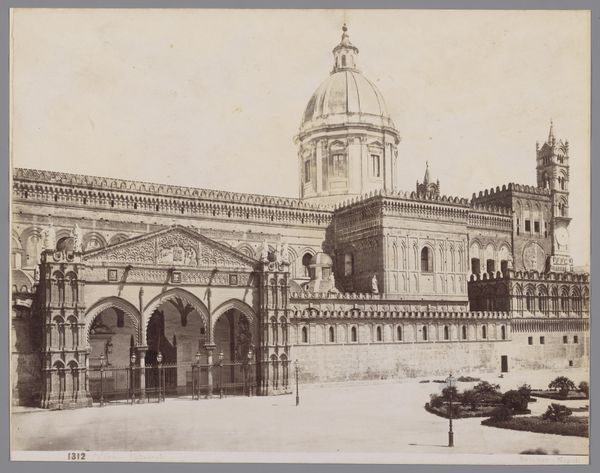
daguerreotype, photography
#
daguerreotype
#
photography
#
cityscape
Dimensions: height 196 mm, width 250 mm, height 270 mm, width 355 mm
Copyright: Rijks Museum: Open Domain
Roberto Rive made this albumen print of the Messina Cathedral sometime in the mid-19th century. Photography in this period involved a great deal of chemical expertise. To make this print, Rive would have coated paper with light-sensitive chemicals, exposed it using a large format camera, and then carefully developed the print in a darkroom. The sepia tones we see here are a result of the developing process. Prints like this were made as collectables for tourists. Photography allowed people to take images of far-off places and share them with others, increasing the appetite for experiencing new locales. We could consider this photograph as part of a larger trend of mass tourism and consumption of imagery that was emerging in the mid-19th century. The very act of creating it relied upon both skilled labor and an audience eager to possess such a memento. Paying attention to the materials and making of this artwork provides insight into its cultural and social significance, reminding us of the labor, travel, and consumption tied to its existence.
Comments
No comments
Be the first to comment and join the conversation on the ultimate creative platform.
